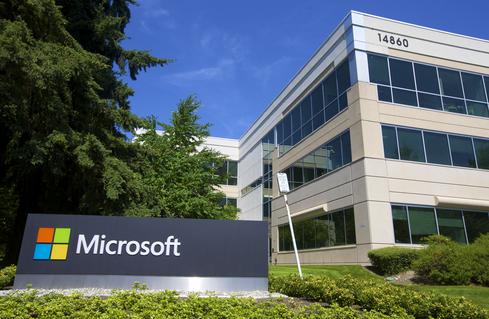Windows 10: Driving Enterprise Upgrades, PC Sales
The next two years will bring accelerated adoption of Windows 10 and new devices within the enterprise, which could help the overall PC market, according to new analysis from Gartner.


Windows 10, New Devices, Exec Shakeup: Microsoft's 2015
Windows 10, New Devices, Exec Shakeup: Microsoft's 2015 (Click image for larger view and slideshow.)
The next couple of years will bring accelerated adoption of Windows 10 within the enterprise, IT research firm Gartner recently reported. At least 50% of businesses will have started deploying the new OS by early 2017 with anticipated completion in 2019.
This shift toward Windows 10 means a good deal of changes for IT departments, as businesses demand a faster adoption. Plus, the new OS means that new types of hardware will enter the corporate network.
"Companies are very aggressive in their approach in moving to Windows 10," said Steve Kleynhans, vice president of Gartner's mobile and client computing group, in an interview with InformationWeek. "More than half will have started production rollouts by the end of 2016, significantly faster than they've ever done before."
The growth may spark some much-needed activity in the sluggish PC market. Businesses in the initial stages of Windows 10 rollout will generally want to deploy the OS on new equipment.
[Microsoft's Cortana is now ready for iOS and Android smartphones.]
Kleynhans explained there is a "pent-up demand" for new devices among businesses. Many organizations have wanted to adopt machines that have been released over the last few years, particularly hybrid convertibles, but have refrained from purchasing them.
Why? Those new devices brought Windows 8, which enterprises were "unprepared and unwilling to integrate," he continued. Now certain business systems and processes depend on getting new machines, and these will be the first systems we see rolling out on Windows 10.
While hybrid devices may be on some organizations' shopping lists, it will be a while before we see the widespread rollout of hybrid computers within the enterprise.
"It's not going to be the big fleet purchase that [businesses] buy for everybody," Kleynhans predicted. Most hybrids are on the high end of manufacturers' product portfolios, he said, and only well-financed organizations would opt for widespread deployment in the near term.
The majority of businesses are likely to begin hybrid distribution among "real road warriors" who have greater need for highly portable PCs. This will change as PC makers begin extending the hybrid design into more aspects of their product lines.
As the prices of hybrids decline, businesses will be able to invest in more of them. This is unlikely to happen in 2016, said Kleynhans, but it's a possibility for 2017.
The heightened demand for new PCs isn't the only factor contributing to rapid Windows 10 adoption. Business are also motivated to avoid past mistakes by preparing for the end-of-life deadline for Windows 7 in January 2020.
Most companies have realized they moved too slowly when it came time to upgrade from Windows XP, and the lag resulted in an expensive migration. Now that Windows 7 has a definite end date, they want to start Windows 10 deployment early and upgrade in a more measured and controlled way.
Organizations also want to begin Windows 10 deployment so they can continue with projects that were started and stalled on Windows 8. The earlier they roll out the OS to small groups, they sooner they can "break the logjam" and continue with upgrades after resolving initial problems with the first group of Windows 10 users.
In his conversations with different companies, Kleynhans discovered many decided to deploy Windows 10 because a CIO, or other high-ranking employee, had installed the OS on their own and discovered how it worked. For many, this sparked a "we should get going faster" mentality.
As they deploy the new OS, companies' biggest challenge will be the accelerated pace of change. Windows 10 will cause them to develop new processes and rethink how they service and patch systems.
The benefit to Windows 10 is you don't have to worry about big upgrades once the system is downloaded, said Kleynhans, but companies will have to face several smaller updates along the way.
"Companies haven't had to do that before for PCs," he continued, noting the upgrade will cause some significant adjustment.
**Elite 100 2016: DEADLINE EXTENDED TO JAN. 18, 2016** There's still time to be a part of the prestigious InformationWeek Elite 100! Submit your company's application by Jan. 18, 2016. You'll find instructions and a submission form here: InformationWeek's Elite 100 2016.
About the Author(s)
You May Also Like
How to Amplify DevOps with DevSecOps
May 22, 2024Generative AI: Use Cases and Risks in 2024
May 29, 2024Smart Service Management
June 4, 2024







